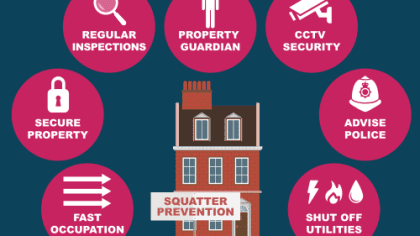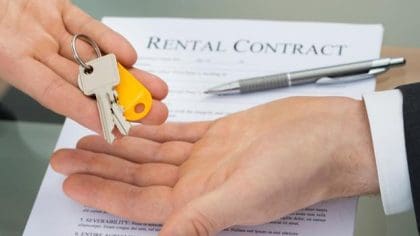Renting in New York City is both exciting and challenging. With its unique mix of old and new, luxury and affordability, NYC’s rental market is one of the most competitive and complex in the world.
Whether you’re new to the city or a long-time resident, understanding your rights as a tenant is crucial.
This guide will help you navigate the city’s rental landscape, empowering you to protect yourself from potential issues and ensuring that your living situation is fair and secure.
Overview of Key Points:
- Tenant Rights: NYC tenants have the right to a habitable home, protection from discrimination, and the right to privacy. Landlords must provide essential services like heat and hot water, and cannot retaliate against tenants who exercise their rights.
- Rent Stabilization: Rent-stabilized apartments offer protections against excessive rent increases and guarantee lease renewal rights. Tenants can file complaints with the DHCR if landlords violate rent stabilization rules.
- Lease and Rent: Understanding the terms of your lease is crucial, especially regarding rent increases and security deposits. Tenants have the right to fair treatment in these matters and can seek legal recourse if necessary.
- Repairs and Maintenance: Landlords are responsible for maintaining their properties and making prompt repairs. Tenants can report issues to HPD if landlords fail to fulfill their obligations.
- Eviction and Harassment: Tenants are protected from illegal eviction and harassment by landlords. Eviction can only occur through a court order, and harassment is illegal under NYC law.
- Subletting and Roommates: Tenants have the right to sublease their apartments and have roommates, but must follow legal procedures and comply with lease terms.
- Legal Resources: Numerous resources are available to help NYC tenants understand and exercise their rights, including the Legal Aid Society, Metropolitan Council on Housing, and HPD.
Overview of Tenant Rights in NYC
New York City offers strong protections for tenants through a combination of local, state, and federal laws.
These laws are designed to ensure that tenants have safe, secure, and have habitability living conditions.
Knowing your rights can help you recognize when a landlord might be violating the law and take appropriate action.
Key Rights Every NYC Tenant Should Know:
- Right to a Habitable Home: Your landlord is required by law to provide a safe and habitable living environment. This includes maintaining the structure of the building, providing heat, hot water, and essential services like electricity and gas.
- Protection from Discrimination: The Fair Housing Act and NYC Human Rights Law protect tenants from discrimination based on race, color, religion, national origin, gender, disability, familial status, or other protected characteristics.
- Right to Privacy: Landlords cannot enter your apartment without giving proper notice, except in emergencies. This right ensures that you have privacy and security in your home.
- Protection from Retaliation: If you exercise your tenant rights – such as filing a complaint about unsafe conditions – your landlord cannot legally retaliate against you by raising your rent, threatening eviction, or cutting off services.
These rights form the foundation of tenant protection in NYC and are enforced by various agencies and legal frameworks.
Rent Stabilization Laws
Rent stabilization is one of the most critical aspects of tenant protection in New York City. Rent stabilization laws are designed to prevent excessive rent increases and provide tenants with the right to renew their leases, offering greater stability and affordability in the city’s housing market.
What is Rent Stabilization?
Rent stabilization applies to certain residential buildings in New York City and other parts of New York State.
The law limits how much rent can be increased each year and guarantees tenants the right to renew their lease in a rent-stabilized apartment. Rent stabilization also provides tenants with protections against eviction without just cause.
How Rent Stabilization Affects Tenants:
- Eligibility: Rent stabilization generally applies to buildings with six or more units that were built before 1974. Some newer buildings may also be rent-stabilized if they receive certain tax benefits. If your apartment is rent-stabilized, you benefit from regulated rent increases and lease renewal rights.
- Rent Increases: The Rent Guidelines Board (RGB) determines the maximum allowable rent increase for rent-stabilized apartments each year. This increase is typically lower than what might occur in the open market, offering more predictable housing costs for tenants.
- Lease Renewal: Tenants in rent-stabilized apartments have the right to renew their lease when it expires. Your landlord must offer you a renewal lease on similar terms as your existing lease.
- Legal Recourse: If you believe your landlord is overcharging you or violating rent stabilization rules, you can file a complaint with the New York State Division of Housing and Community Renewal (DHCR), which oversees rent stabilization enforcement.
Rent stabilization is a powerful tool that helps keep New York City affordable for many residents. If you live in a rent-stabilized apartment, it’s essential to understand these protections fully.
Lease Agreements and Rent Increases
A lease is a legal contract that outlines the terms of your rental agreement. Understanding the details of your lease is crucial, as it dictates your responsibilities as a tenant and your landlord’s obligations.
Understanding Lease Agreements:
- Key Terms: Your lease should clearly state the amount of rent, the duration of the lease, the security deposit required, and any policies regarding pets, guests, and subletting. Review these terms carefully before signing.
- Rent Increases: In non-rent-stabilized apartments, landlords can raise the rent at the end of a lease term, but they must provide proper notice. The amount and frequency of rent increases should be outlined in your lease. For rent-stabilized apartments, rent increases are subject to limits set by the RGB.
- Lease Renewal: In most cases, your landlord must notify you if they plan to renew your lease and at what rent. In rent-stabilized apartments, this notification must follow specific rules, and the tenant has the right to choose between a one- or two-year renewal.
- Legal Protections: If your landlord tries to raise your rent or alter the lease terms in a way that violates the law, you can seek help from tenant advocacy organizations or file a complaint with the DHCR to proceed with lease termination.
Understanding the terms of your lease can prevent misunderstandings and disputes down the line.
Security Deposits and Pet Policies
Security deposits and pet policies are common issues that tenants face in NYC. Understanding your rights regarding these matters can help you avoid conflicts and ensure that you are treated fairly.
Security Deposits:
- Amount: In NYC, landlords can require a security deposit, usually equal to one month’s rent. This deposit is meant to cover any potential damage beyond normal wear and tear.
- Return of Deposit: Upon moving out, your landlord must return your security deposit within 14 days, minus any legitimate deductions for damages. The landlord must provide an itemized list of any deductions made.
- Disputes: If your landlord fails to return your security deposit or makes unreasonable deductions, you can take legal action in small claims court or file a complaint with the Attorney General’s Office.
Pet Policies:
- Pet Fees: Some landlords charge additional fees for tenants with pets. These fees should be outlined in your lease agreement.
- Service Animals: Landlords cannot refuse to rent to tenants with service animals, even if the building has a no-pets policy. Service animals are not considered pets and are protected under federal law.
- Damage Responsibility: As a tenant, you are responsible for any damage your pet causes to the property. This could be deducted from your security deposit.
Knowing these policies ensures that you and your landlord are on the same page, preventing potential conflicts.
Repairs and Maintenance Responsibilities
Maintaining a habitable living environment is a fundamental right for tenants in NYC. Landlords are legally required to keep their properties in good condition and address any repair issues promptly.
Landlord Responsibilities:
- Maintenance of Property: Landlords must maintain the building’s structure, plumbing, heating, and electrical systems. This includes ensuring that common areas are clean and safe.
- Emergency Repairs: In the event of an emergency, such as a burst pipe or heating failure, landlords must make repairs immediately to prevent harm to tenants.
- Pest Control: Landlords are responsible for keeping the building free from pests like rodents and insects. Regular pest control treatments should be conducted to ensure a safe living environment.
Tenant Responsibilities:
- Reporting Issues: Tenants must report any repair needs to the landlord promptly. This can be done via written communication or through an online portal if provided by the landlord.
- Minor Repairs: Tenants are generally responsible for minor repairs, such as changing light bulbs or unclogging drains. However, significant repairs should be handled by the landlord.
- Access for Repairs: Tenants must allow the landlord or maintenance workers access to the apartment to perform necessary repairs, provided they receive proper notice.
If a landlord fails to make necessary repairs, tenants can file a complaint with the NYC Department of Housing Preservation and Development (HPD), which can enforce compliance and order repairs.
Heat and Hot Water Requirements
One of the essential services that landlords in NYC are required to provide is heat and hot water.
These services are critical for maintaining a safe and comfortable living environment, especially during the city’s harsh winters.
Heat Requirements:
- Heating Season: The heating season in NYC runs from October 1st to May 31st. During this time, landlords must ensure that indoor temperatures are maintained at specific levels:
- Daytime (6 AM – 10 PM): The indoor temperature must be at least 68 degrees Fahrenheit when the outdoor temperature drops below 55 degrees Fahrenheit.
- Nighttime (10 PM – 6 AM): The indoor temperature must be at least 62 degrees Fahrenheit, regardless of the outdoor temperature.
- Reporting Heat Issues: If your landlord fails to provide adequate heat during the heating season, you can report the issue to HPD, which can issue violations and order the landlord to restore heat.
Hot Water Requirements:
- Year-Round Service: Landlords are required to provide hot water at a minimum temperature of 120 degrees Fahrenheit at all times, year-round.
- Reporting Issues: If your landlord fails to provide hot water, you can report the problem to HPD, which will investigate and take appropriate action.
Ensuring that you have access to adequate heat and hot water is not just a comfort – it’s a legal requirement that your landlord must meet.
Eviction Protection and Tenant Harassment Laws
Eviction is one of the most serious issues a tenant can face. Fortunately, New York City has strong eviction protections in place to ensure that tenants are not unfairly removed from their homes. Additionally, laws against tenant harassment provide further safeguards.
Eviction Process:
- Legal Grounds for Eviction: A landlord can only evict a tenant for specific legal reasons, such as non-payment of rent, violation of the lease terms, or if the landlord wants to use the apartment for personal use.
- Court Order Required: Landlords cannot evict tenants without a court order. If you receive an eviction notice, you have the right to contest it in housing court. Only a judge can order your eviction.
- Notice Requirements: Depending on the reason for eviction, landlords must provide specific notice periods before initiating eviction proceedings. For example, for non-payment of rent, a 14-day notice is required.
Tenant Harassment Laws:
- Definition of Harassment: Harassment includes any actions by a landlord intended to force a tenant to move out. This can include turning off essential services, making threats, or repeatedly entering the apartment without notice.
- Legal Protections: It is illegal for landlords to harass tenants. If you believe you are being harassed, you can file a complaint with the HPD or seek legal assistance from tenant advocacy organizations.
- Consequences for Landlords: Landlords found guilty of harassment can face significant penalties, including fines and restrictions on their ability to rent out the apartment.
Knowing your rights regarding eviction and harassment can help you stand your ground and take legal action if necessary.
Access to Essential Services and Amenities
Access to essential services and amenities is a critical aspect of tenant rights in NYC. Your landlord is responsible for ensuring that all the services and amenities promised in your lease are provided without interruption.
Utility Services:
- Inclusions in Lease: If your lease includes utilities such as water, electricity, gas, or internet, your landlord must ensure these services are available at all times, except during necessary maintenance or repairs.
- Service Interruptions: If there is a service interruption, your landlord should notify you promptly and provide an estimated time for restoration. Prolonged interruptions without just cause may be grounds for filing a complaint.
Common Areas and Amenities:
- Maintenance of Common Areas: Landlords are responsible for maintaining common areas, such as hallways, stairwells, laundry rooms, and recreational facilities. These areas should be clean, safe, and accessible to all tenants.
- Use of Amenities: If your building includes amenities like a gym, rooftop terrace, or parking garage, you have the right to use these facilities as outlined in your lease agreement. Any restrictions or rules regarding their use should be clearly communicated to tenants.
If your landlord fails to provide access to essential services or maintain amenities, you can file a complaint with the HPD or seek legal assistance.
Subletting and Roommate Rights
Subletting and having roommates are common practices in NYC, especially given the high cost of living.
However, it’s important to understand the legal requirements and rights associated with these arrangements.
Subletting Rights:
- Subletting Permission: Tenants in NYC generally have the right to sublet their apartments, but they must follow specific legal procedures. This includes obtaining the landlord’s written consent.
- Subletting Process: To sublet, you must send a written request to your landlord, who has 30 days to respond. If the landlord does not respond within this period, their consent is considered granted.
- Lease Obligations: Even if you sublet your apartment, you remain responsible for the lease obligations. This means you must ensure the rent is paid and that the subtenant complies with all lease terms.
Roommate Rights:
- Right to Have a Roommate: Under NYC law, you have the right to have a roommate, even if your lease does not explicitly allow it, as long as the total number of occupants does not exceed legal occupancy limits.
- Disclosure Requirements: If you have a roommate, you must notify your landlord of their name within 30 days of their moving in.
- Lease Compliance: Both you and your roommate must comply with the lease terms. If your roommate violates the lease, you could be held responsible.
Understanding your rights regarding subletting and roommates can help you manage your living situation effectively and avoid potential legal issues.
Resources for Legal Assistance and Advocacy
Navigating tenant rights can be challenging, especially if you’re facing a difficult situation with your landlord.
Fortunately, there are numerous resources available to help NYC tenants understand their rights and take action when necessary.
Key Resources for NYC Tenants:
- Legal Aid Society: This organization provides free legal assistance to low-income tenants facing eviction, harassment, and other housing-related issues. They offer representation in housing court and can help you understand your rights.
- Metropolitan Council on Housing: A tenant advocacy group that offers advice, support, and advocacy for tenants. They provide workshops, one-on-one consultations, and resources to help you navigate housing challenges.
- NYC Housing Court: Handles cases related to landlord-tenant disputes, including eviction proceedings and rent disputes. The court also offers resources and assistance for tenants representing themselves.
- Department of Housing Preservation and Development (HPD): Enforces housing quality standards and assists tenants in filing complaints against landlords. HPD can issue violations and order landlords to make necessary repairs.
These resources are invaluable for tenants who need legal assistance, advice, or advocacy in dealing with landlord-tenant issues.





